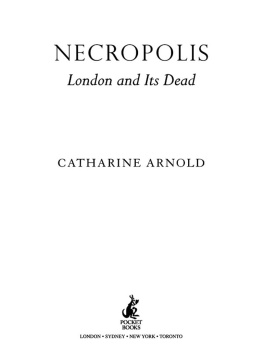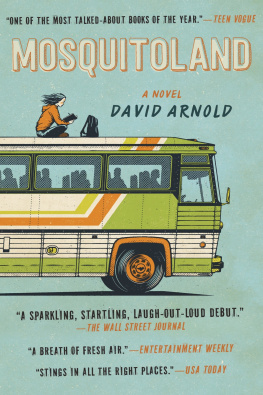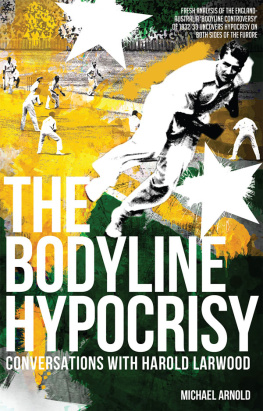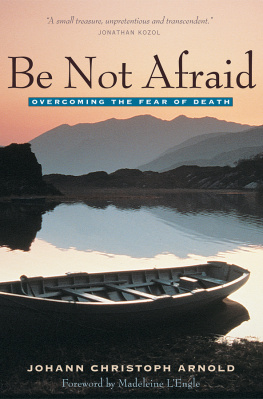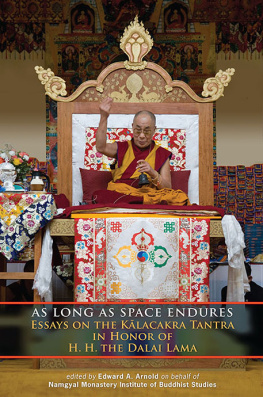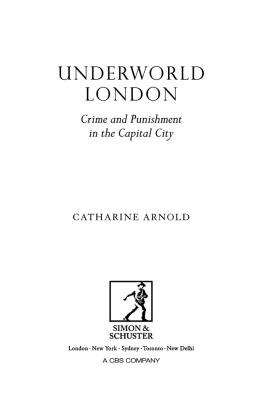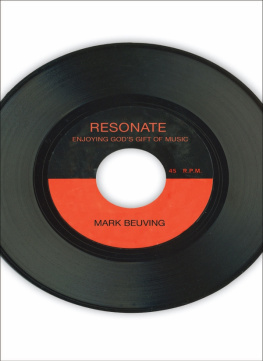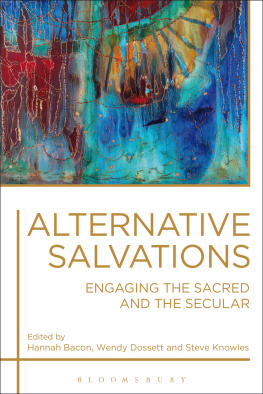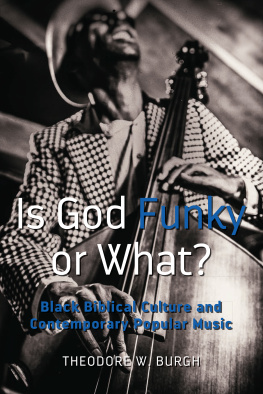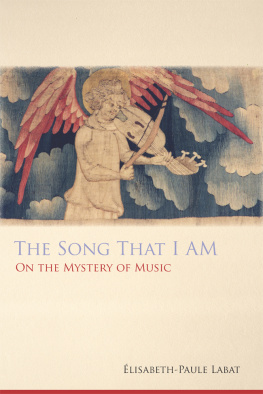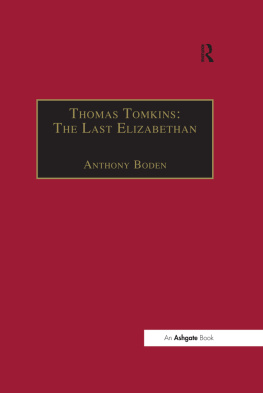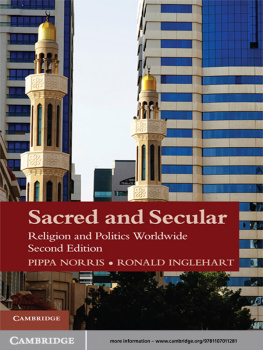SACRED MUSIC IN SECULAR SOCIETY
As both a sacred musician and a scholar of historical theology, Jonathan Arnold is uniquely qualified to write this lucid and informed book. He tackles one of the most mysterious and fascinating questions in the area of theology and the arts: what is it about music that still appeals so vividly to modern peoples sense of the spiritual? He explores this question in an engaging, open, accessible and enthusiastic way, bringing his own insights into conversation with some of the best-known composers, performers and theorists of sacred music at work today.
Ben Quash, Kings College London, UK
Jonathan Arnold explores the phenomenon of sacred music as a potent force, whether heard in its liturgical setting or the concert hall, to lead us beyond ourselves to the transcendent and the numinous. His thought-provoking survey draws upon the experience of those who create sacred music as composers or performers, whether as people of profound, uncertain or no faith, providing rich insights into the compelling mysteries and beauties of this treasure trove of music.
John Scott, Organist and Director of Music,
St Thomas Church, New York City, USA
An intriguing, fresh look at the existence and role of music and its sublime effect. What is it that is so special about sacred music?
Ralph Allwood, Director, Eton Choral Courses
A valuable contribution to the study of sacred music in our world today.
Stephen Leyton, Trinity College, Cambridge, UK
If music has ever given you a glimpse of something beyond the horizons of our materialism or our contemporary values (James MacMillan), then you will find this book essential reading. Asking why Christian sacred music is now appealing afresh to a wide and varied audience, both religious and secular. Jonathan Arnold offers unique insights as a professional singer of sacred music in liturgical and concert settings worldwide, as an ordained Anglican priest and senior research fellow.
Blending scholarship, theological reflection and interviews with some of the greatest musicians and spiritual leaders of our day, including James MacMillan and Rowan Williams, Arnold suggests that the intrinsically theological and spiritual nature of sacred music remains an immense attraction particularly in secular society. Intended by the composer and inspired by religious intentions this theological and spiritual heart reflects our inherent need to express our humanity and search for the mystical or the transcendent. Offering a unique examination of the relationship between sacred music and secular society, this book will appeal to readers interested in contemporary spirituality, Christianity, music, worship, faith and society, whether believers or not, including theologians, musicians and sociologists.
For Thomas and Katie
Sacred Music in Secular Society
JONATHAN ARNOLD
Worcester College, University of Oxford, UK
ASHGATE
Jonathan Arnold 2014
All rights reserved. No part of this publication may be reproduced, stored in a retrieval system or transmitted in any form or by any means, electronic, mechanical, photocopying, recording or otherwise without the prior permission of the publisher.
Jonathan Arnold has asserted his right under the Copyright, Designs and Patents Act, 1988, to be identified as the author of this work.
Published by
Ashgate Publishing Limited
Wey Court East
Union Road
Farnham
Surrey, GU9 7PT
England
Ashgate Publishing Company
110 Cherry Street
Suite 3-1
Burlington, VT 05401-3818
USA
www.ashgate.com
British Library Cataloguing in Publication Data
A catalogue record for this book is available from the British Library
The Library of Congress has cataloged the printed edition as follows:
Arnold, Jonathan.
Sacred music in secular society / by Jonathan Arnold.
pages cm
Includes index.
ISBN 978-1-4094-5170-9 (hardcover : alk. paper) ISBN 978-1-4094-5171-6 (pbk. : alk.
paper) ISBN 978-1-4094-5172-3 (ebook) ISBN 978-1-4724-0673-6 (epub)
1. MusicReligious aspects. 2. MusicSocial aspects. I. Title.
ML3921.A76 2014
781.71dc23
2013026725
ISBN 9781409451709 (hbk)
ISBN 9781409451716 (pbk)
ISBN 9781409451723 (ebk PDF)
ISBN 9781472406736 (ebk ePUB)
Bach musicological font developed by Yo Tomita
Contents
Acknowledgements
I would like to thank all those who have helped and encouraged the completion of this book, especially those who kindly gave their time by agreeing to be interviewed: Harry Christophers, Stephen Farr, James MacMillan, James ODonnell, Peter Phillips, Robert Saxton, Roger Scruton, Francis Steele and Rowan Williams. I am immensely grateful to them for their insights and wisdom, without which this book would have been impossible.
My sincere appreciation is offered to those who have assisted my research by reading extracts from my thesis and offering helpful criticism and advice. In particular, I would like to thank Rebecca Adams, of Worcester College, Oxford for transcribing the interview material, which saved me an enormous amount of time. I am deeply grateful, once again, for the meticulous work of historian Tim Stuart-Buttle of Worcester College for his painstaking proofreading, editing and sound advice, and to Sarah Lloyd and Barbara Pretty, my editors at Ashgate for all their support and help, as well as the anonymous peer-reviewers who offered such helpful guidance on both the proposal and the manuscript. Their work has assisted me immeasurably and any mistakes that remain are entirely my own.
As with any project I undertake, it would get nowhere without the love, support and faith of Emma, and the constantly stimulating company of our children, Thomas and Katie. I am delighted that Amy the cat managed to stay with us for this book as she entered genuine old age. I wish to thank my parents, Brenda and Christopher, who encouraged my love of music and supported my career choice of music. And so, lastly, I wish to thank all those musicians with whom I was, and am, fortunate to work, for many happy times making music throughout the world.
Interviewees
Harry Christophers is known internationally as founder and conductor of The Sixteen as well as a regular guest conductor for many of the major symphony orchestras and opera companies worldwide. He has directed The Sixteen choir and orchestra throughout Europe, America and the Asia-Pacific region, gaining a distinguished reputation for his work in Renaissance, Baroque and twentieth-century music. He has made a significant contribution to the recording catalogue (already comprising over 100 titles) for which he has won numerous awards including the coveted Gramophone Award for Early Music and the prestigious Classical Brit Award in 2005 for his disc Renaissance.
Harry Christophers has been Artistic Director of Bostons Handel and Haydn Society since 2008, is Principal Guest Conductor of the Granada Symphony Orchestra and regularly appears with the Academy of St Martin-in-the-Fields. As well as performing on the concert stage, Harry Christophers continues to lend his artistic direction to opera.
Harry Christophers received a CBE in the Queens 2012 Birthday Honours List. He is an Honorary Fellow of Magdalen College, Oxford, as well as the Royal Welsh College of Music and Drama, and has an Honorary Doctorate in Music from the University of Leicester.
Stephen Farr is Director of Music at St Pauls Church, Knightsbridge, a post that he combines with a varied career as soloist, continuo player and conductor. He was Organ Scholar of Clare College Cambridge, graduating with a double first in Music and an MPhil in Musicology. He then held appointments at Christ Church, Oxford and at Winchester and Guildford Cathedrals. From 2007 until 2012 he was Director of Chapel Music at Worcester College, Oxford.


